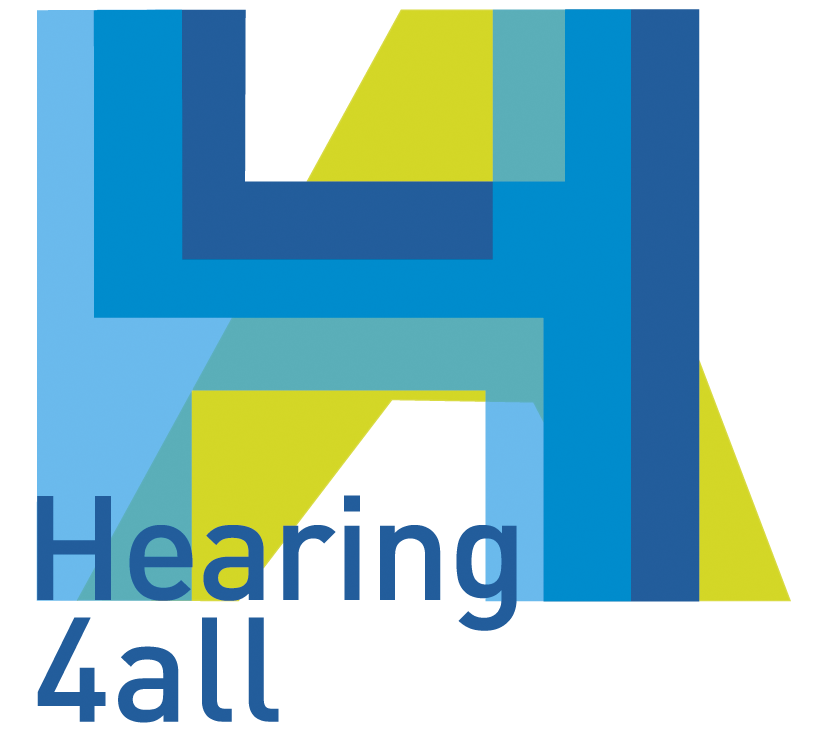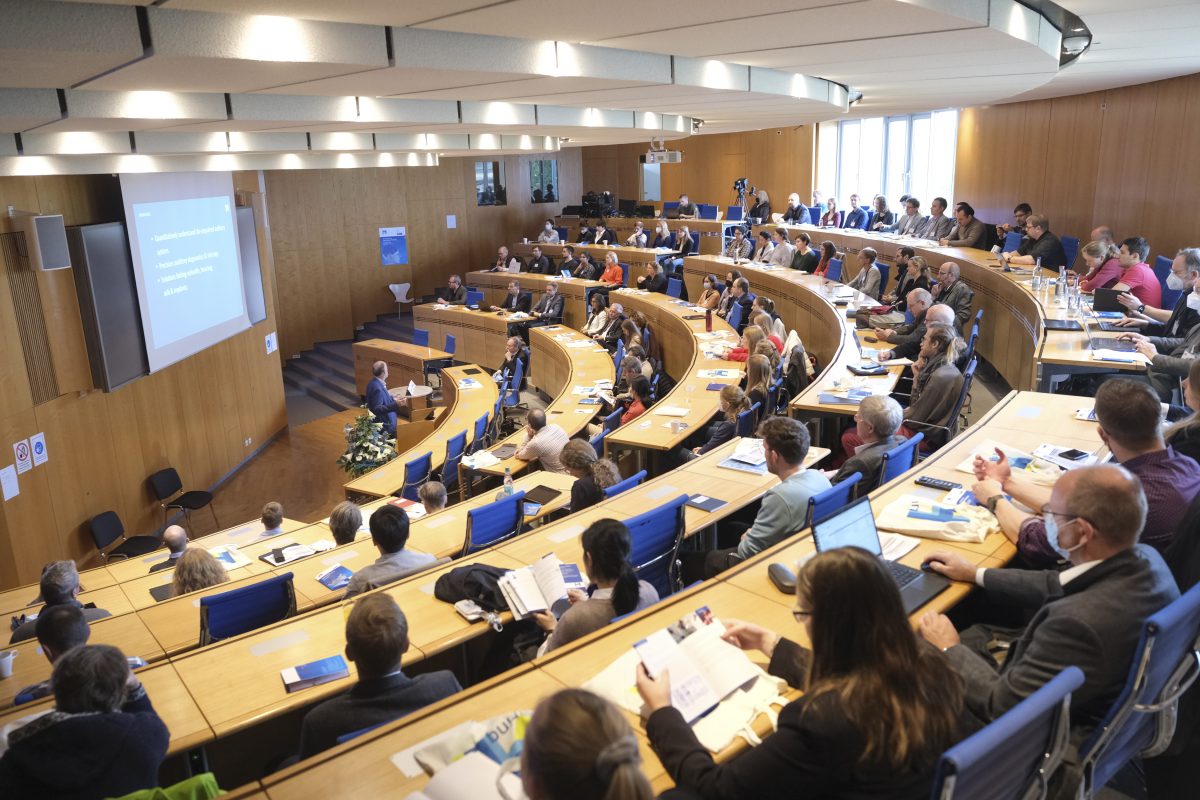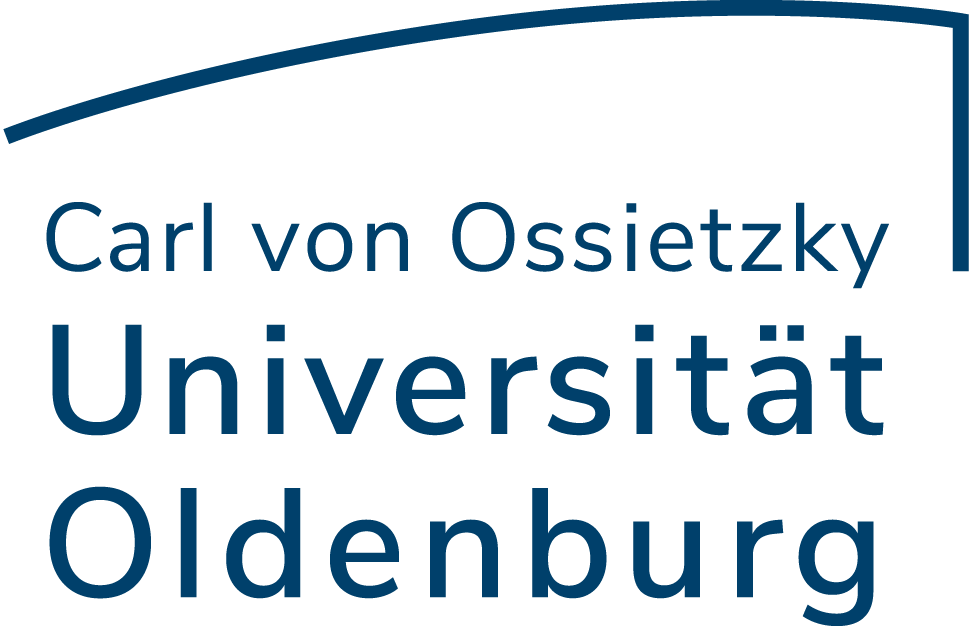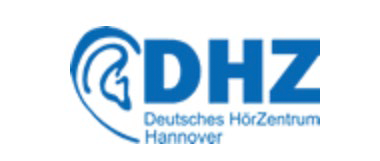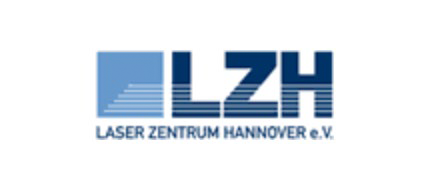Ten Years Cluster of Excellence Hearing4all
International symposium provides insight into research results
For decades, research has been conducted at the highest level in Oldenburg and Hanover to sustainably improve the lives of people with hearing impairments. Exactly ten years now, this has been done jointly in the Cluster of Excellence Hearing4all. The interdisciplinary research network, funded by the German Research Foundation (DFG) and led by the University of Oldenburg, is working at full speed on clinical and practical problems related to hearing.
This year’s international symposium under the title “The Future of Hearing” took place from November 03 to 04 at the Hannover Medical School and offered exciting insights into the research results of Hearing4all.
International guests enriched the program and provided insights into research beyond the Cluster of Excellence. In a keynote talk, Prof. Alessia Paglialonga from the National Research Council of Italy gave an insight into her research on hearing screening in adults. She registers an increasing number of developments of self-performable hearing screening tests worldwide. There is a trend toward multivariate approaches that also include general health or even demographic and socioeconomic factors. Combined with the use of machine learning algorithms, these approaches can help develop accurate methods for predicting the risk of developing hearing loss, explained Prof. Alessia Paglialonga. She was one of five women among the eight keynote speakers at the symposium. “Our international keynote panel highlights the full range of hearing research from neurophysiology to hearing modeling and clinical applications,” noted Prof. Dr. Dr. Birger Kollmeier, a medical physicist at the University of Oldenburg and spokesperson for the Cluster of Excellence. “The particularly high proportion of women was an important impetus for the symposium. Together with the many strong developments from the cluster and the discussions that took place here, it points the way to the future of our research.”
Researchers from the Hearing4all Cluster of Excellence reported on current results from the four research lines in highlight talks. The Virtual Hearing Clinic, Deep Learning approaches, and advances in reducing trauma during cochlear implant electrode insertion particularly stood out.
Digital solutions for real treatment success
Dr. Lena Schell-Majoor of the University of Oldenburg reported on a key concept of Hearing4all – the Virtual Hearing Clinic. Globally, only a fraction of all people have access to good diagnostics and modern hearing systems. Hearing4all has therefore set itself the goal of digitizing processes and methods and thus improving care across borders with the “Virtual Hearing Clinic”. To this end, various modules developed in the Cluster of Excellence will be combined into one app. This will enable low-threshold diagnostics and hearing support via mobile devices and reduce the barrier for individuals to test their hearing and receive information about possible treatments and their potential outcomes.
Current work involves adapting and validating test procedures and interfaces for use on mobile devices, calibrating each device, psychological and audiological profiling, and defining and setting up the technical infrastructure.
The goal is self-administered hearing tests, prediction of treatment success for technical hearing aids (e.g., hearing aids or cochlear implants), hearing aid simulation, and ultimately a treatment recommendation based on audiological grading. With a first smartphone-based demonstrator, hearing threshold, loudness perception and speech intelligibility can be measured. Further components of the Virtual Hearing Clinic are continuously being developed and integrated into the platform for mobile devices.
Artificial intelligence for the hearing systems of the future
Recent research results on the use of Deep Learning-based methods for speech source recognition and localization in hearing aids were presented by Dr. Peyman Goli from the University of Oldenburg. Deep learning refers to a special method of information processing. Unlike machine learning, no programmer needs to intervene to make adjustments. In Deep Learning, the algorithms themselves determine whether their decisions are right or wrong. These technologies are of great use in many fields, and they will also be used in hearing instruments to provide self-learning algorithms for speech source recognition and localization. Such algorithms can be used to drive beamformer algorithms in hearing systems to distinguish and amplify target speech from interfering sources. One method explored in the Cluster of Excellence uses either a binaural (i.e., distributed to both ears) or only a monaural, single-sided microphone array of a hearing aid. Following the human auditory system, peripheral preprocessing of the microphone signals is performed to obtain auditory subband signals that serve as input to a model that is trained to recognize and localize speech sources. This method shows better performance compared to several others.
More safety for cochlear implants
The prize for the best presentation by a young scientist went to Georg Böttcher-Rebmann of Hannover Medical School. He reported on the progress made in his research group at Hannover Medical School to reduce the occurrence of trauma during the insertion of cochlear implant electrodes, which is very important for preserving patients’ residual hearing. The first step was to develop a surgical tool that allows measurement of insertion forces during conventional CI surgery. The second step was to develop concepts that provide feedback to the surgeon through intraoperative force visualization. The approach proved successful in test CI insertions in human specimens. The approval process for in vivo use of the new technology has been initiated.
The current funding period of the Hearing4all Cluster of Excellence runs until 2025, by which time many more milestones will certainly have been reached to sustainably improve the lives of people with hearing impairments. Some of these will be presented at the next symposium in Oldenburg in November 2023.
